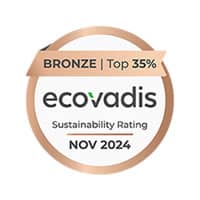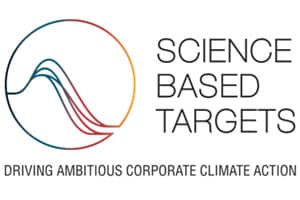Environment
Committed to environmental protection, health and safety
Tocris Bioscience is committed to making sustainable manufacturing a fundamental part of our business. It is our aim to reduce and control our environmental impact by establishing clear site goals and committing to green initiatives. Our Bristol facility has been designed with sustainability in mind, using LED sensor lights throughout powered by 100% renewable electricity.
Click here to learn more about Bio-Techne's enterprise-wide sustainability initiatives.
Green Chemistry Practices
We believe in designing for sustainability in our manufacturing processes. We seek continuous improvement following the 12 Principles of Green Chemistry, including:
- Minimising material waste where possible through responsible purchasing and resource management
- Reducing use of chlorinated solvents in manufacturing due to their particularly harmful characteristics, both to the employees and the environment
- Optimising reactions using Design of Experiments (DoE) – resulting in more efficient synthetic routes that minimise waste
Case study:
The synthesis of Janelia Fluor® 525, NHS ester (Tocris Cat. No. 6296) was streamlined by removing two steps, boosting atom economy by 3%, reducing E-factor by 83%, and reducing Process Mass Intensity by over 70%.

My Green Lab Certification
|
|
The Pharma/Biotech industry was responsible for 5% of global carbon emissions in 2022, which equates to 193 million tonnes of CO2 (My Green Lab, 2023) - equivalent to powering over 32 million households every year. The My Green Lab Certification program was selected as a key progress indicator for the UN-backed Race to Zero campaign, which aims to certify 95% of labs at the highest level - Green - by 2030. Tocris’ Chemistry and Quality Control laboratories have both received My Green Lab certifications – Green and Platinum respectively. During the certification process, laboratory spaces are measured against sustainability best-practices in areas such as: |
|
My Green Lab Focus |
How We Contribute |
|
|
Community culture |
|
Sustainability-focused Lunch & Learns to educate on current green chemistry practises |
|
Waste management and recycling |
 |
Using a communal reagent inventory to share resources. Recycling our rigid lab plastics |
|
Green chemistry |
 |
Designing efficient syntheses using DoE and using less hazardous reagents |
|
Infrastructure and equipment energy usage |
 |
LED lights on sensors throughout. Use of reduced energy settings when the labs are not in use |
|
Purchasing |
 |
Committing to “right-size” purchasing and consolidating order |
Supply Chain
 |
Our dedication to reducing our environmental footprint has been recognised through becoming a Trusted Sustainability Partner with Fisher. Additionally, the majority of our Fisher catalogue have a Greener Choice icon, indicating specific products that have been manufactured in ways that align with Fisher’s sustainability goals. |
|
We are taking steps to reduce the use of virgin plastics in our packaging. For example, our MitoBrilliant™ kits used to be packaged in plastic securitainers. Now, we distribute these kits in compact, recycled cardboard matchboxes. |

|
 |
We have partnered with DHL and enrolled into their GoGreen Plus service which directly invests in their Carbon Insetting program. Carbon Insetting directly and wholly invests in decarbonisation initiatives such as Sustainable Aviation Fuel (SAF) within DHL's transport network. A large majority of our EU shipments use this DHL service when travelling by air and we plan to continue to develop and reduce our Scope 3 impact. |
Alignment to Best-in-Class Sustainability Frameworks




